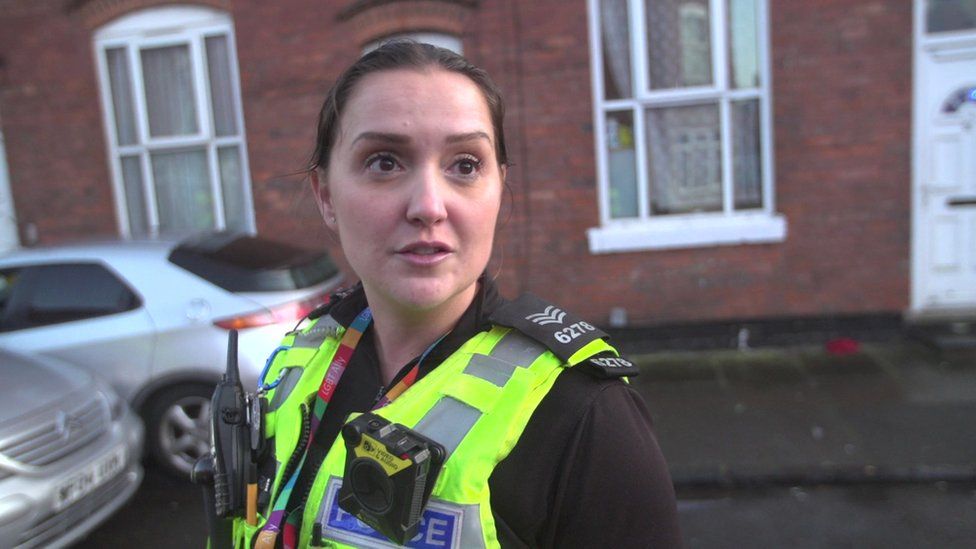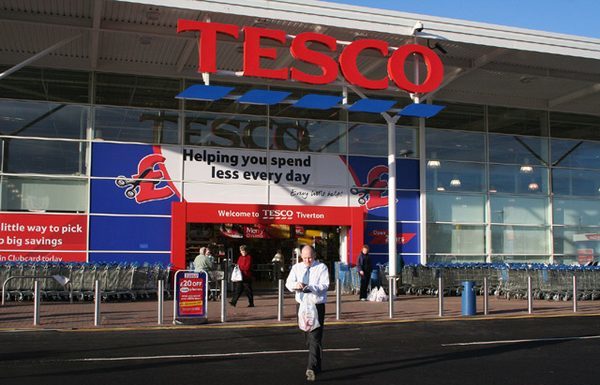Police have made a record number of arrests in a week-long push to tackle so-called county lines drug gangs.
Officers arrested 743 people and seized drugs worth over £400,000, 12 guns and dozens of other weapons.
The operation, by forces across England and Wales, resulted in the “disruption” of 49 “deal lines”, police said.
Senior officers say better co-ordination between police forces means they know more than they’ve ever done about the gangs and their activities.
County lines drugs gangs use dedicated phone lines to send mass texts to customers and organise networks of couriers, often children and vulnerable adults, to move the drugs from cities to smaller towns.
These phone lines are branded with a gang’s name, allowing customers to place orders but the dealers, based in distant cities, remain anonymous to avoid getting caught.
Overall, 652 men and 91 women were arrested in the so-called National Week of Intensification which began on 7 October, the highest number in any week of co-ordinated police activity against county lines gangs.
The push was led by teams dedicated to fighting organised drug dealing, backed up by uniformed officers expert in pursuing and stopping cars.
The operation also made use of intelligence from the National Crime Agency and automatic number plate recognition (ANPR) cameras which are being used to spot dealers moving drugs from major cities to the location where they are being sold.
Senior officers say in recent years the lines, and the use of young people to move the drugs, have become the predominant “business model” for drug dealing.
“We know more than we have ever known about the gangs and those people who get exploited as part of county lines activity,” said Deputy Assistant Commissioner Duncan Ball, from the National Police Chiefs’ Council.
He said better intelligence was the result of police forces working more closely together.
“We’re resolved to tackle the gang leaders and tackle them hard,” he added.
Birmingham to Worcestershire
The BBC was given access to the West Midlands Police Regional Organised Crime Unit as it tried to stop gangs operating between Birmingham and Worcestershire.
In Aston, Birmingham, covert officers were on the streets in large numbers looking for gang leaders and drugs couriers.
Traffic patrols trained in high-speed pursuit techniques followed one car which crashed, breaching a gas main.
Officers had to swiftly clear the street while trying to find the suspect.
At least one county line is suspected to be moving drugs from Birmingham to the town of Droitwich in Worcestershire.
The police believe this single line is making £4,000 a day.
The West Midlands team followed the drugs to their destination and lay in wait for the dealers with the help of West Mercia Police.
Eventually a car was picked up by an automatic number plate reading camera outside Birmingham, heading to the area.
The suspects reportedly switched cars before police mounted a high-speed “hard stop” on a busy rural road and arrested them.
West Midlands police carried out simultaneous raids on Friday 11 October in Tipton, Birmingham, targeting a county line linking Birmingham and Hereford.
A knife and samurai sword were found in a flat.
Children: ‘A commodity’
County lines gangs are a challenge for police because they cause significant harm to the young people caught up in their activities – many are groomed to carry drugs and go missing from home.
Sgt Jen Edwards, who leads the relatively new West Midlands Police team, called the gangs “heartless and cruel”.
“They do not see these children as vulnerable children, they see them as a commodity, and a way of using them to make them more money.”
Supt Rich Agar, who leads the West Midlands Police county lines operation. said: “They don’t get their hands dirty.
“They don’t carry the drugs, they don’t have the weapons used for enforcement. They use vulnerable adults and children.
“The people at the bottom get caught and go to prison.”
Police are increasingly using co-ordinated operations to tackle the gangs.
During the intensification week, senior officers compared notes on a daily basis to ensure intelligence was shared.
The government has announced it will expand the new County Lines Co-ordination Centre set up to provide oversight.
Police and the Home Office are also considering whether new laws could target the way county lines gangs send mass text messages to their customers to advertise drugs.













![Hotstar Premium Cookies 2019 [*100% Working & Daily Updated*] Hotstar Premium Cookies 2019 [*100% Working & Daily Updated*]](https://tahav.com/wp-content/uploads/2019/11/Hotstar-Premium-Cookies-Free-100x70.jpg)



